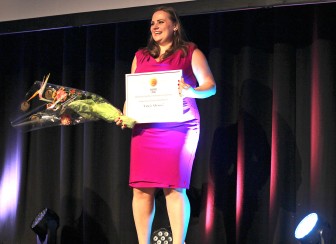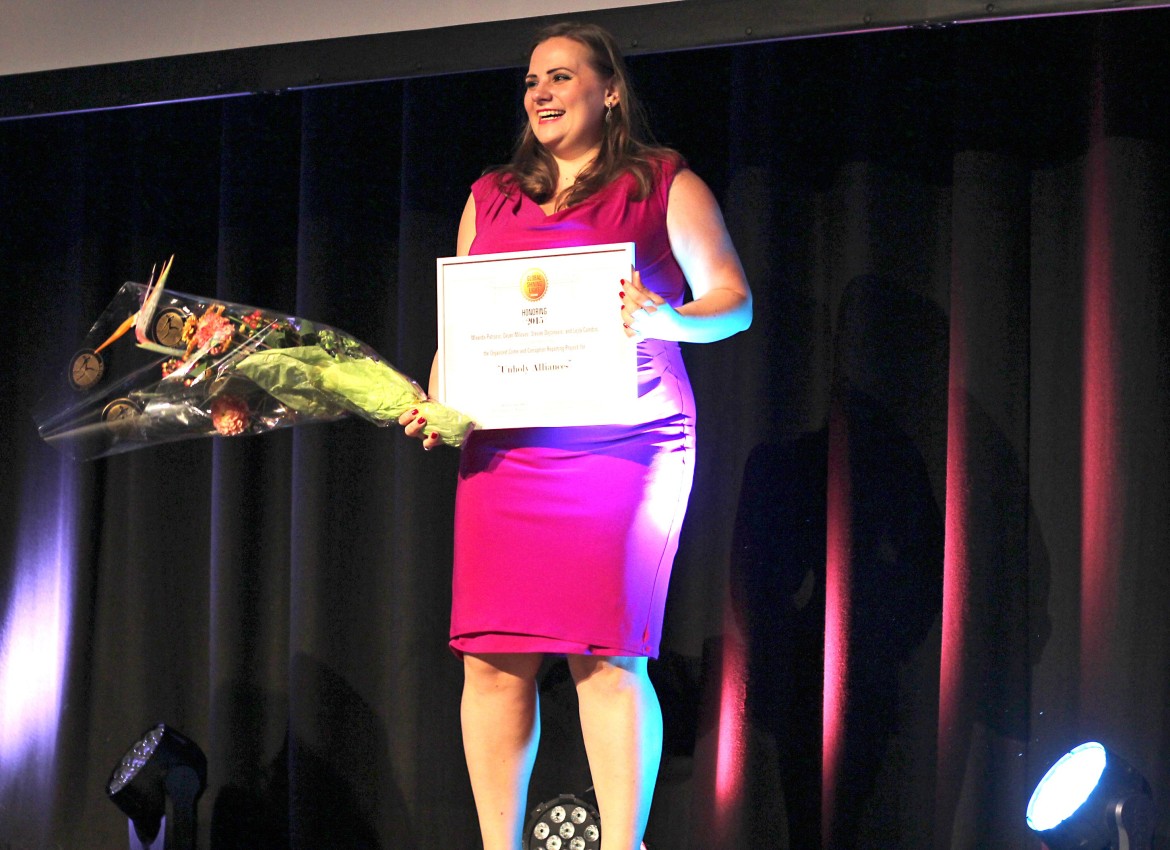
Kristine M. Gutterød
Miranda Patrucic receiving the Global Shining Light Award at the Global Investigative Journalism Conference in Lillehammer. Photo: Kristine M. Gutterød.
Miranda Patrucic is a lead investigative reporter for the Organized Crime and Corruption Reporting Project, based in Sarajevo, Bosnia. She recently shared first prize in the Global Shining Light Awards, for Unholy Alliances: How Organized Crime, Government and Business Interact in Montenegro. The award was given at the Global Investigative Journalism Conference on October 10 in Lillehammer, Norway, where we caught up to her to ask what it’s like to investigate a Mafia state.
Why is this investigation important?
Some countries pretend to be democracies, or pretend to be strong developing countries with something to offer to Europe. On the other hand, they have strong ties with organized crime. A government with close ties to organized crime does not work for the people. It works for its own interest. With this project, we unveiled that the Prime Minister and his family have enabled criminals to launder their money. The government tried to give public resources to organized crime figures.
What kind of threats did you receive after the investigation?
We were called traitors, enemies of the state, CIA agents, soldiers for other interests. As a woman you face harassment. They try to dismiss you, your work. When we published the story, we couldn’t find any person in the government willing to respond to our questions. If the government does not respond, the message is: “We can continue to work with organized crime and we can continue to threaten journalists.”
What were the positive consequences of the investigation?
In this case, the European Union, which for a long time said that Montenegro was improving, decided to take a closer look at developments in the country. The European Union wrote a report that pointed to the organized crime and corruption. The pressure to prove wrongdoing came from abroad.
What is the most important piece of methodology used to carry out the project?
The project was everything investigative journalism is: developing and protecting sources, finding every single piece of public record, going undercover, talking to regular people to find why the story matters to them.
Is collaboration important?
It is hugely important: this project would not be possible without the cooperation built within three Balkan countries and the help of the colleagues abroad. The story was published in many other countries outside the Balkan region, which helped to get the word out. Also, sometimes the records are not available in the country you are reporting on, but they are available abroad. It’s crucial for journalists to establish ties: Law enforcement agencies can do very little, it takes a long time for them to act. Journalists have incredible skills, incredible sources, and they can help each other on stories.

